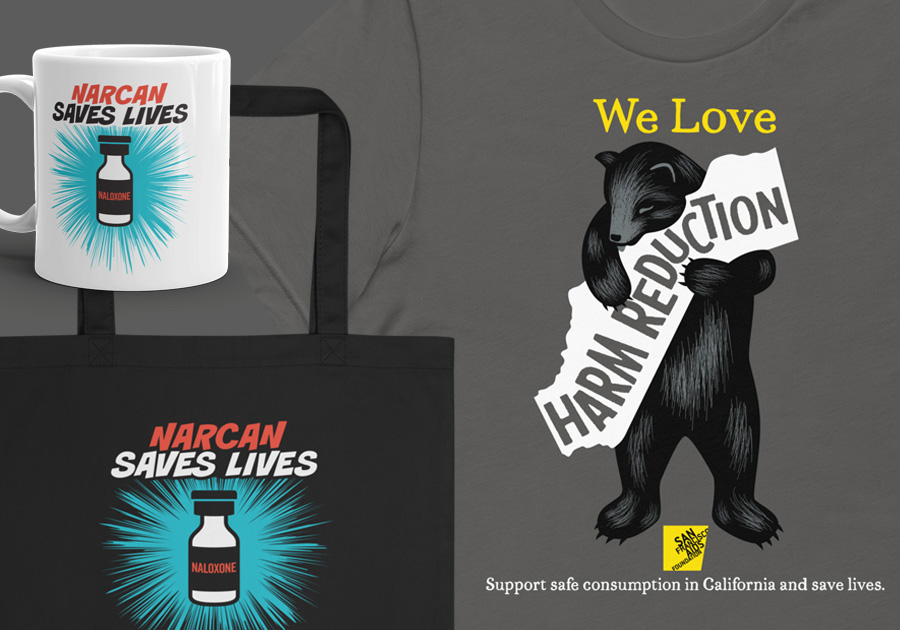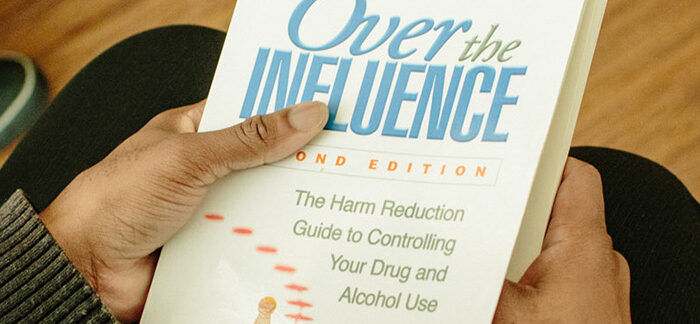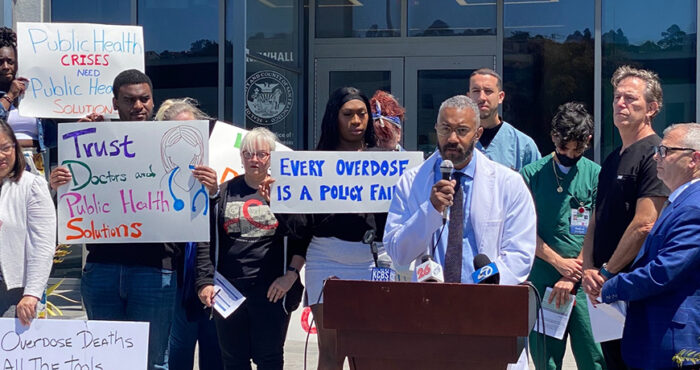We’re living a reality we never could have dreamed of: a drug crisis of unimaginable proportions with hundreds of lives lost every year to overdose, combined with a rapidly deteriorating situation on our city’s streets. We can solve these issues–with comprehensive solutions and evidence-based policies and programs–but first we must end the harmful ideas and actions around criminalization and “cracking down” on drug use.

After more than 50 years of the “War on Drugs,” we know that criminalizing people who use drugs not only does not deter or prevent drug use, but results in overburdened justice systems, the growth of illicit drug markets, a chaotic and unsafe drug supply, and missed opportunities for treatment and support. And, criminalization strategies are particularly detrimental to Black and Latinx communities and other communities of color. Incarceration significantly increases risk of overdose upon release, and charging people for possessing “paraphernalia” harms HIV and viral hepatitis prevention efforts. Although we recognize the role that law enforcement plays in improving public safety, fully-supported public health measures are best suited to address our city’s drug crisis.
Countries that have shifted away from punitive drug policies to fully-supported harm reduction and public health have made strides in reducing problematic drug use, increasing the number of people voluntarily entering treatment, reducing HIV and hepatitis C transmission, and improving the lives of residents and the health of their cities and communities. Public health approaches to addressing the drug crisis, with services such as drug checking, syringe access, voluntary treatment, and safe supply offer compassionate and effective strategies for addressing drug-related harms to people and communities, and include ways to interrupt and prevent the root causes of problematic substance use. Criminalizing people who use drugs will NOT end drug use, addiction, or overdose, nor will it prevent HIV and hepatitis C.

Forced drug treatment–for instance when someone is forced into treatment through the criminal legal system–is not effective and can cause serious harm. People are more likely to succeed in reaching goals related to their substance use–whether that is abstinence, partial abstinence, reduced use, or reduced harm from substance use–when they are motivated and empowered to seek help voluntarily, and aren’t shamed or forced into punitive programs.
Treatment services that offer the full range of support and resources that people may need to address their substance use, including mental health care, must be readily and easily available for people when they make the decision to make a change. In San Francisco, open and accessible drug treatment options–available immediately and without contingencies–are not yet a reality. We need an adequate supply of residential treatment centers, transitional recovery housing, medication assisted treatment programs, dual-diagnosis treatment options, detox programs, and sobering centers, all with supportive counseling, outreach, and aftercare services. Forced treatment will NOT end addiction.

Many people in San Francisco use substances outdoors in public places simply because they have no other place to go. Safe consumption and overdose prevention sites, in existence in hundreds of cities around the world, are a proven way to not only improve the health of people who use drugs, but improve communities. They give people a safe and hygienic place to use, reduce public outdoor drug use, increase public safety, and reduce drug-related litter. They also facilitate connection to social and substance use services, by providing a compassionate and judgment-free place where people who use drugs can go to receive services. Many peer-reviewed research studies have proven the benefits and positive outcomes of safe consumption sites to communities. Public outdoor drug use will NOT end without establishing overdose prevention sites.

Some drug treatment options–such as recovery-based, abstinence-only programs–might work for some individuals but not for others. We know from decades of research on substance use treatment that the most effective programs offer people a range of services and support that people can choose from in order to find something that works best–and that many people may manage their substance use without formal programs. Voluntary treatment services must include options such as behavioral therapy and counseling, medication assisted therapy (MAT) with medications including buprenorphine and methadone, innovative incentive-based programs like contingency management, residential treatment options, sobering centers, and aftercare services. Promoting abstinence-only treatment above all other approaches not only ignores best-evidence substance use treatment research, but doesn’t meet the substance use needs of the majority of people who use drugs. Moralizing has NO PLACE in substance use treatment and support.

Much of the conversation around drug use, the drug crisis, and public safety on the streets in San Francisco has to do with poverty and people who are unhoused. Although all types of people all across the city use drugs, our city leaders are focused on criminalizing the poorest among us who have no choice but to conduct their private lives in public places. And research has found that involuntarily displacing people experiencing homelessness–through sweeps, clearings, and clean-ups–substantially increases risk of death over the long-term. Instead of targeting and penalizing people for the economic and housing disparities our city faces, we must find innovative ways to safely house all of our residents. The condition on our streets will NOT improve before we end homelessness.

Before prioritizing politicians and “experts” who claim they know what’s best for all people who use drugs, we must listen and learn about what support people who currently use drugs say they need–even if what they share doesn’t match our preconceived notions. We believe people are the experts in their own lives, and will make the choices that are best for their lives when they have the choice, freedom, access, and economic ability to do so. We will NOT solve the drug crisis without listening to people who use drugs.

California Loves Harm Reduction
Show your support for common sense public health investments and evidence-based substance use treatment programs! Take a look at the harm reduction collection in the SFAF shop.









